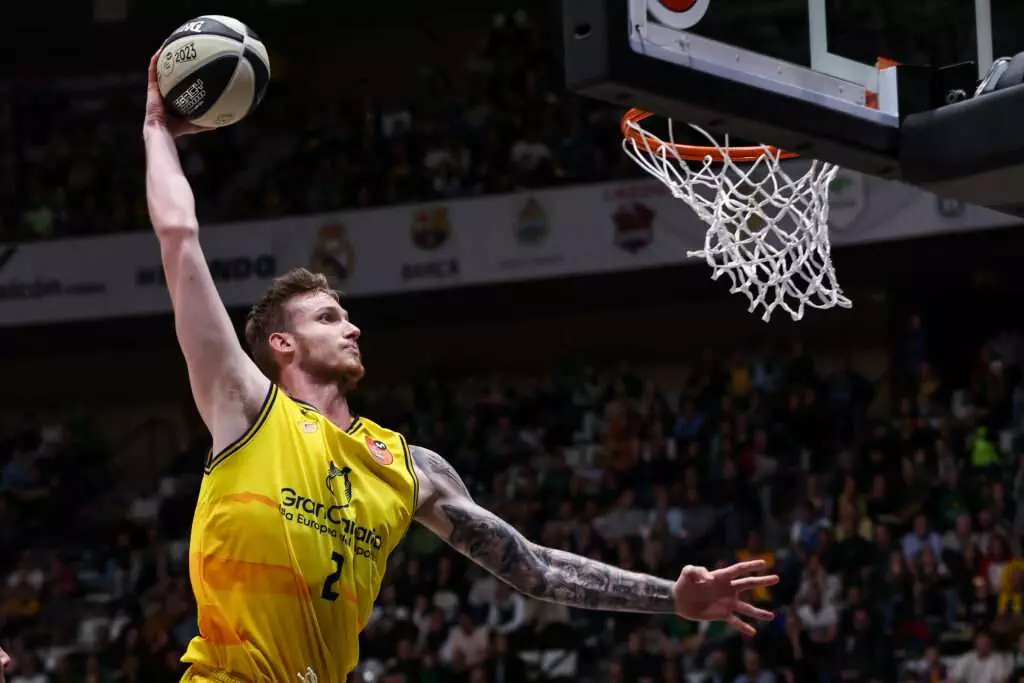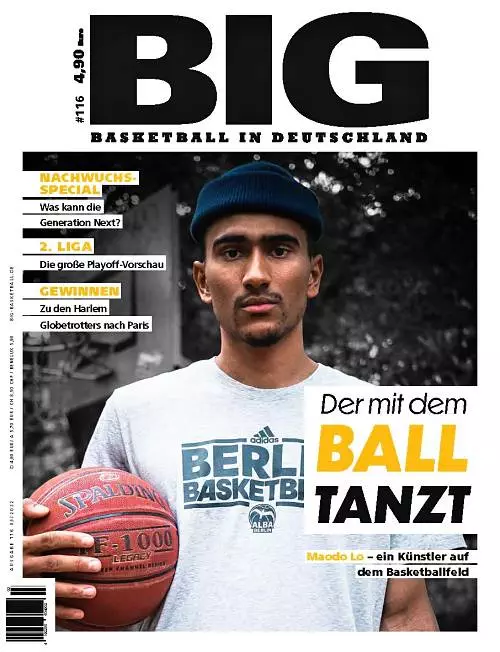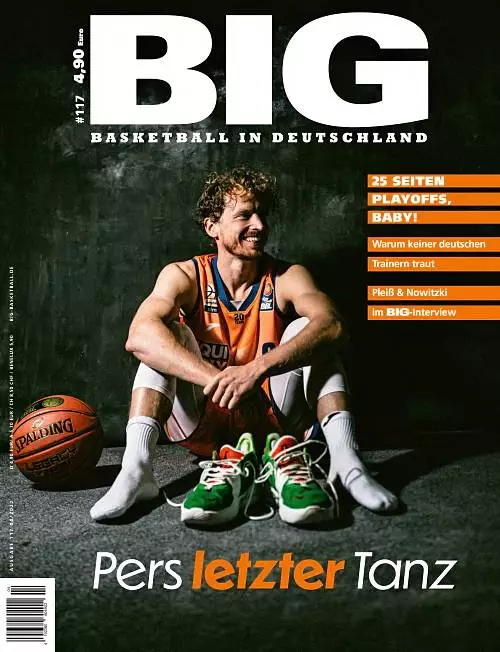
David Pick | Nr. 65
Werden EuroCup und Champions League zusammengelegt? | David Pick über die mögliche Fusion der beiden europäischen Wettbewerbe und die Frage, wie wichtig ältere Spieler für den Erfolg sind.
The EuroLeague Final Four and BCL weekend finale are some of the most exciting times of the season. MVP’s, Defensive Player of the Year, All-1st Team awards and more are announced. Players are decorated and glorified for the regular season before the championship-winning team hoists the trophy. Fans from all over Europe far and wide gather together roaming the streets (of Kaunas) to cheer on their heros. It’s definitely a celebration on demand.
I get all that, and it’s nothing short of thrilling. The highlight of such events for me, though, as a former journalist and basketball beat-writer, were the press conferences and private media sessions of INVITES ONLY for intimate times with EuroLeague and FIBA decision makers. It was an opportunity to personally mingle and raise ideas and suggestions to improve the competitions and engagement with the media. I always liked to challenge the executives with thoughts and ideas thrown out of left field that were otherwise considered taboo.
One burning subject that came across my desk more than once in recent memory is the possibility of EuroCup and Champions League joining forces. Malaga recently hosted the BCL Finale where whispers of the potential FIBA-EL collaboration surfaced during the traditional media press conference that couldn’t have been ignored.
FIBA CEO Patrick Comninos provided a very shady response, basically beating around the bush and ducking the bottom-line defininte YES or NO answer. „What I will say is that we have a very open dialogue with the new management of the EuroLeague, always with the view of fighting for the ultimate solution to find the right way to make European basketball grow. We are sitting around the table looking at a number of topics, not only EuroCup and BCL. We hope we will be able to share a lot of information, and not just respond to rumors. There’s a lot of room for improvement, and also confusion and uncertainty. We are aligned in this direction in creating an environment that creates excitement. It’s no surprise that we require better structure and clarity for our competition, we need to safeguard the strength of the domestic leagues. One of our key missions is to bring investment to basketball. Nobody invests in a sports team that doesn’t have the opportunity of winning titles”, Patrick Comninos said.
I’ll be honest, I don’t know if this collaboration will come into fruition. To me it seems impossible, and it’s clear that the absence of EuroLeague players during the National Team in-season windows, was hurting everyone from the games to the team to the players down to the fans.
I don’t think many of the sponsors will agree to this either. Speaking of sponsors and money – I also know that many clubs such as Gran Canaria and Hapoel Haifa to name a few, have opted out of their respected competitions due to financial restrictions. Reports blew up on social media that the reigning EuroCup winners from the Canaries Islands will likely forfeit their participation in the EuroLeague due to budget limitations and opt to remain in EuroCup.
Haifa embarked on a first-time campaign in the FIBA Europe Cup competition, that ultimately led to a long drought of 12-game losing streak, multiple injuries, and lastly, the firing of head coach Sharon Drucker. Haifa GM made it clear his club suffered a significant financial loss that handicapped his club, and they’re not looking to compete in any European competition next season.
Comninos went on to talk about the several refunds given to the teams who are playing at the highest level of the BCL. “At the end of the day, we are in a competitive environment, where everybody should benefit financially. What we are providing to all the teams is important to cover all the expenses. It should always be the icing on the cake, an important and pleasurable experience. The teams that lift the trophy should obviously be rewarded significantly more”, he added.
OLD vs NEW
The Russian VTB League conducted its 1st-ever All-Star event in a very different format. It was called “OLD” vs “NEW”. The “OLD” generation of players are those over 30 years of age, and the “NEW” consist of the younger generation of players under 30 years of age. Needless to say, the “OLD” dudes won the game, cuz OLD School is so much cooler than the NEW. LOL.
Jokes aside. Can we actually learn something from this? Is there hard strong evidence to back this narrative up?! Let’s examine.
There’s an interesting dynamic of ages between the Top-4 EuroLeague teams, and the bottom ranked clubs. It’s widely known that a pro athlete’s max productivity and his peak performance are roughly between the years 28-31. Oddly enough, in recent years the product and growth of new talent, good enough talent, hasn’t surfaced enough.
The question that rises is simple: Do older players generate more success for their teams?
There are some really „old“ EuroLeaguers at the bottom of the EuroLeague. ASVEL has a bunch of them from Charles Kahudi 36 to Nando De Colo 35 to Alex Tyus 35 to David Lighty 34 to Antoine Diot 34 to Dee Bost. Virtus Bologna poured millions of Euros into a roster that wasn’t able to even sniff the Playoffs: From Marco Belinelli 37 to Milos Teodosic 36 to Daniel Hackett 35 to several others over 30. Bayern Munich too sports seven players born before 1993, highlighting them all is Othello Hunter 36. If you thought seven players over 30 was a lot, here’s what Olimpia Milano’s roster looks like, brace yourselves: 1, 2, 3, 4, 5, 6, 7, 8, 9, 10 (!). TEN players over 30 with Kyle Hines 36 and Luigi Datome 35 leading the way.
If we base our research on these numbers the clear image it depicts screams „out with the old and in with the new“. These old cats are good, but not good enough to actually win. But is that really the case? Real Madrid’s roster has some serious vets on board and theyre in the Final Four. Coaches sign „vets“ to bring balance and leadership to their locker room. When „shit hits the fan“ teams need a voice of reason, someone experienced to cut the growing tension. Because when the going gets tough, the tough get going. Also, a coach is more likely putting the ball in a vets hands and someone he trusts, rather a player less experienced. Prime example. In Game 3 of the series between Fenerbahce and Olympiacos, Coach Bartzokas drew up the final play where Walkup inbounds the ball to Sloukas. Shaq McKissic has loads of experience being a 32-year-old EuroLeague vet. He demanded the ball. “Give me the ball. I’ll make the shot”, he said in the huddle. “SHUT UP. SHUT UP. SHUT UP,” Coach Bartzokas clapped back. Fast forward a few seconds later …. We all know how that 33-years-old little Greek point guard ended the game. BOOM.
So, back to our scouting. Kyle Hines is no scrub. Billy Baron is no chump. Nicolo Melli isn’t bad at basketball. Milos Teodosic is still one of the best floor generals in the EuroLeague. Nando De Colo remains one of the most clutch players in EuroLeague. Vets are important, but they’re not always a formula that guarantees wins. Fatigue, load management, slow knees, and lack of athleticism, drive and motivation can influence how deep a team goes in the postseason after a rigorous ten months.
But on the flipside to those losing teams, the 2023 Final Four participants have their own fair share of superstars that drank from the fountain of youth and found rejuvenated success this season and might actually lead their team to EuroLeague glory. Here’s a list of the number of players above 30 on each of those teams. Olympiacos (6), Barcelona (8), Real Madrid (7), Monaco (4).
Let’s clear any confusion! Players at the bottom of the EuroLeague are certainly worthy of playing at the Final Four level, but this game isn’t about individual talent. It’s not tennis. There’s coaching, chemistry, home court advantage, and above all – PURE LUCK. So to square the narrative that “older” guys don’t deliver … ask Sloukas, ask Llull and Rodriguez, ask Mirotic or better … ask the “OLD” generation that won the VTB All-Star Game.


